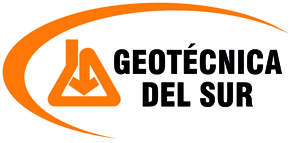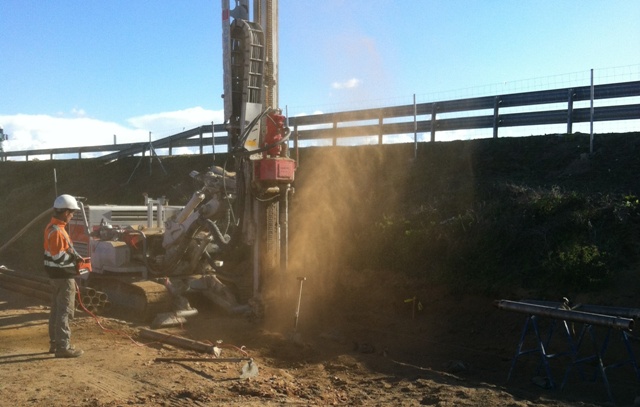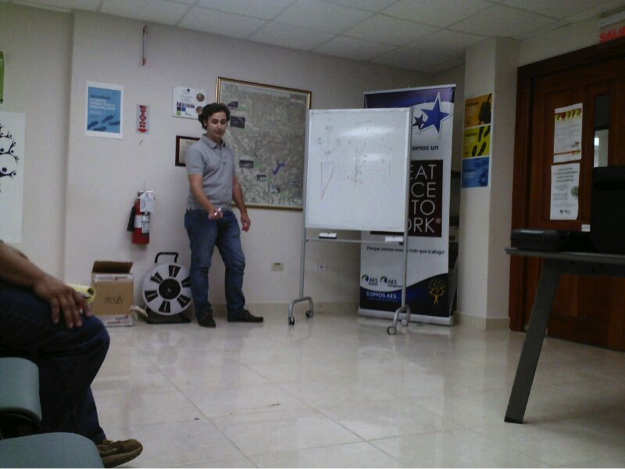Geotecnia y Rehabilitación Field Works
Before undertaking any civil engineering and building project or works, it is vital to learn about the characteristics of the underlying ground. The ground survey depends on the size of the area to be studied, the complexity of the terrain and the importance of the planned building, project or civil engineering work.
The field survey is based on the identification of the different subsoil strata and their geotechnical characteristics, as well as determining the excavation method, the groundwater level, stability of the excavation walls, exploitation of materials, etc. The ultimate aim of the geotechnical survey is to define the typology and scale of the works, so that the loads generated by foundations, excavations and backfilling, or the loads borne by containment structures, do not produce situations of instability or excessive movement in the ground or in the structures themselves.
Geotécnica del Sur, S.A. has been conducting geotechnical surveys, covering both building and civil engineering works, for over 35 years, making use of our state of the art equipment to complete the projects with which we are challenged. The following stand out as primary examples:
- Vertical and inclined drilling, with typical borehole diameters of 76 - 146 mm and up to 1,000 metres deep. The possibilities which can be used for the drilling system include: single head, double head, triple head, non-core, wire-line, etc.
- Collection of undisturbed soil samples with open samplers, collecting undisturbed samples with piston or Shelby tube samplers, extraction of waxed core samples, standard penetration tests (SPT).
- Dynamic penetration super-heavy (DPSH) testing, with enough rods to reach depths of up to 50 metres.
- Execution of test holes with sampling of undisturbed surface samples.
- Execution of Menard or Oyo type pressure meter tests, depending on the type of soil tested, in order to attain data on the ground’s deformation modulus as well as values for the ground’s flow pressure and pressure limit.
- Lefranc permeability testing for soils and Lugeon permeability testing for disturbed rocks.
- CPTU testing (piezocones) concurrently with pore pressure dissipation testing.
Trabajos realizados

Lorem ipsum dolor sit amet, consectetur adipiscing elit. Integer lacinia commodo neque quis porttitor
Cliente: Lorem Ipsum
Importe: 100000€
Ver PDF

